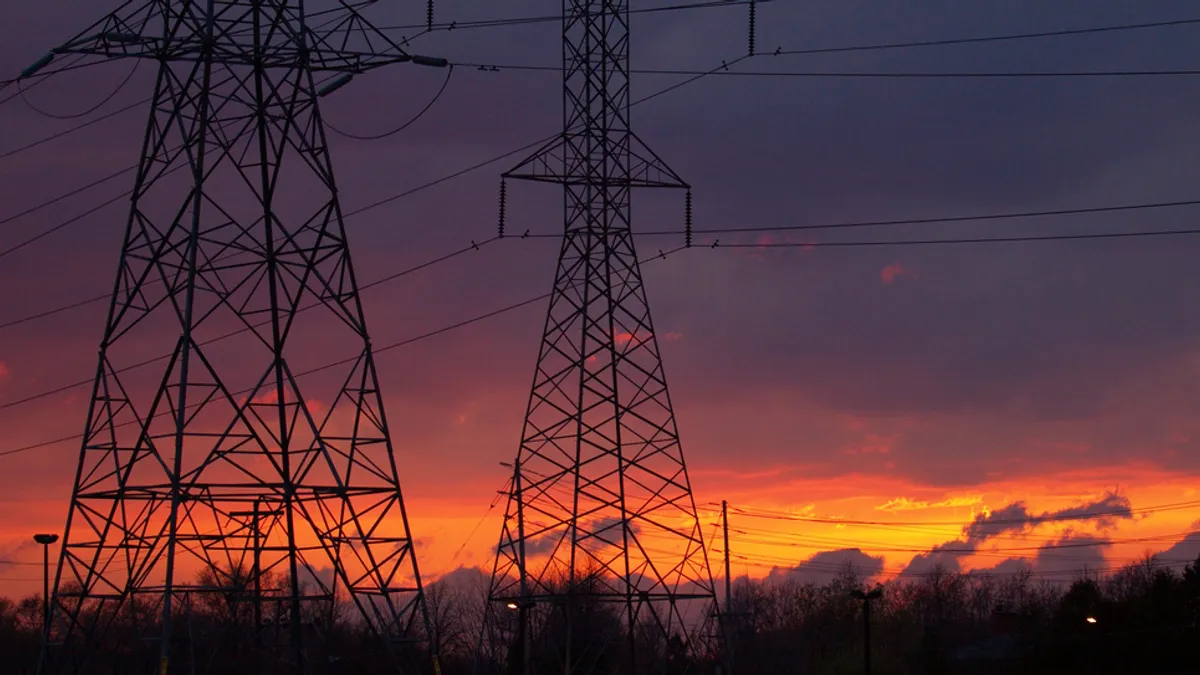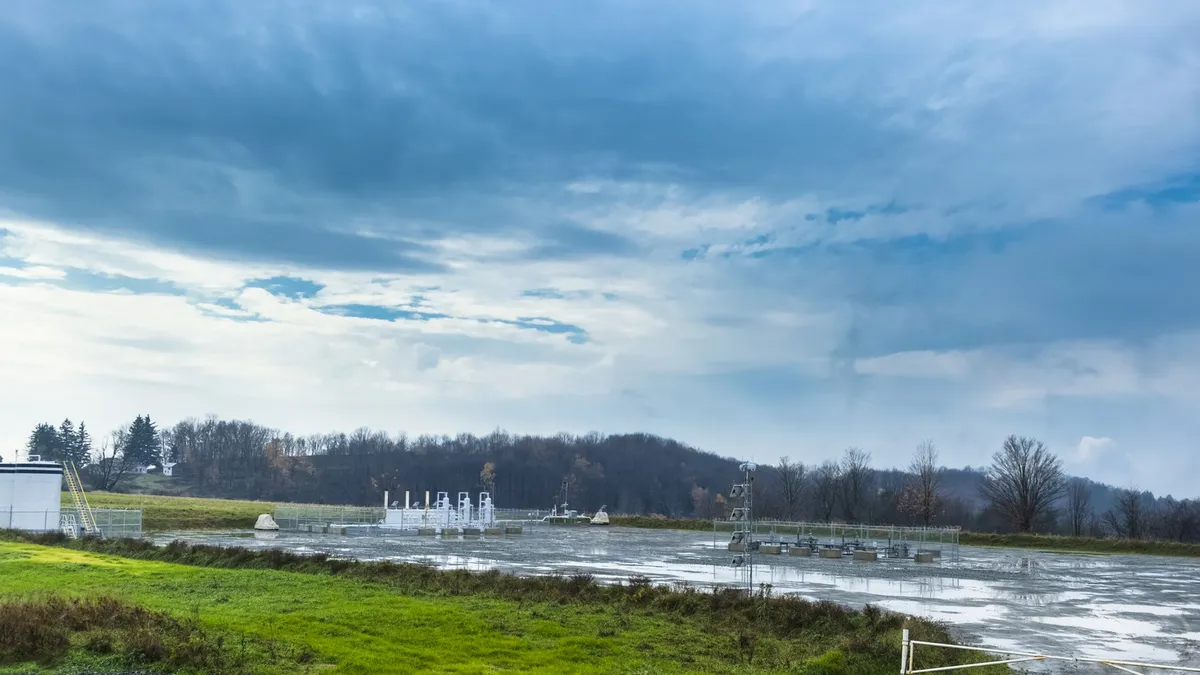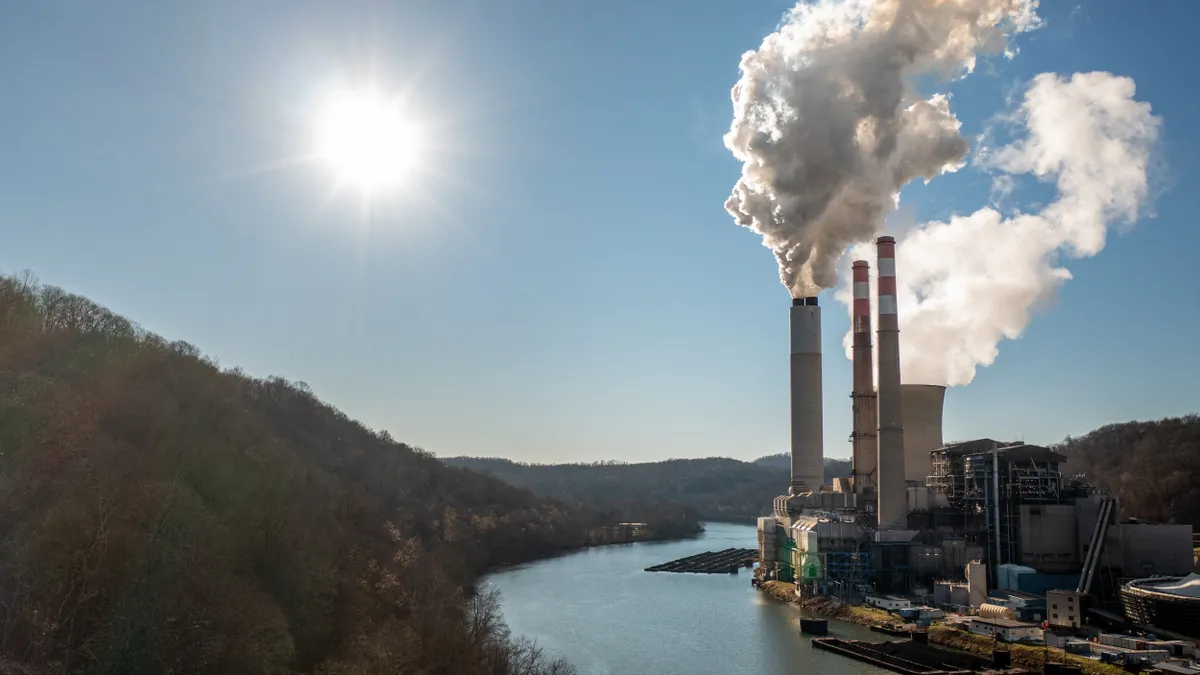A bipartisan group of former federal regulators are calling on the Federal Energy Regulatory Commission to expand organized wholesale power markets across the U.S., urging the commission to flex their full authority under the Federal Power Act.
Nine former FERC commissioners and chairs in a letter sent Wednesday pushed the independent agency to move the U.S. toward "well-structured organized power markets in all regions of the country," citing higher levels of renewable energy and "substantial customer benefits." Currently, restructured competitive markets run by regional transmission operators (RTOs) or independent system operators (ISOs) exist across the Northeast, Mid-Atlantic, Midwest, Texas and California, while much of the West and Southeast operate under a more traditional, vertically integrated model.
"As the pace of decarbonizing the grid accelerates, we are convinced that the time for organized market expansion is now. Hence, we are writing to urge the Commission to use the broad authorities and tools available under the Federal Power Act to move toward well-structured organized power markets in all regions of the country," read the letter.
Although discussions around RTO expansion are ongoing resistance to the shift is strong in markets, particularly the Southeast, where efforts to study potential benefits of moving the market toward a more organized structure in North Carolina are experiencing significant hurdles from the state's dominant utility. Questions remain on whether such an application of FERC's authority is politically feasible — or whether FERC has the bandwidth as it digs into potential capacity market reform, and is in the midst of implementing several major orders, among other things.
"Of course, any mandate would be a legally and politically controversial. ... is this a fight FERC wants to take on now?" said Ari Peskoe, director of Harvard's Electricity Law Initiative, in an email.
Resistance to RTO expansion
RTOs came into conflict with some of their states in the Northeast and Mid-Atlantic during the Trump administration. Grid operators and merchant generators raised concerns that state subsidies were nudging out newer power plants, and resulting rule changes left states with strong decarbonization mandates worried that their grid operators wouldn't enable those policies. In the PJM Interconnection, FERC implemented a rule that raised the price for state subsidized resources bidding into the capacity markets, and a similar rule was implemented in the New England ISO, though both grid operators are moving away from those policies.
All that has left FERC scrambling to revisit the rules set under the Trump administration, alongside implementing its storage and distributed energy resources orders, and embarking on a number of technical conferences. Taking on the restructuring of the rest of the country would no doubt be a heavy lift, stakeholders said.
"It seems to me that FERC's institutional efforts would be better spent trying to fix the problems in existing RTOs, rather than spreading them to regions that may not be interested in having them," said Tony Clark, a former FERC Commissioner and current senior advisor at law firm Wilkinson, Barker, Knauer, where he primarily works with energy and telecommunications utilities.
"You’ve got CAISO, PJM, NYISO, and ISO-NE all in the midst of various crises – related to reliability and/or market design constructs. ... New England, New York and Mid-Atlantic state leaders are at loggerheads with their RTOs. ... So it's not like FERC doesn't have its work cut out for it already, without taking on the fight that would ensue from another run at forcing every state into an RTO," he added in an email.
Utility trade group Edison Electric Institute, which represents investor-owned utilities in restructured and vertically-integrated regions, said that expanding the RTO/ISO model across the country is a "one-size-fits-all approach" that is "not the answer."
"The clean energy transition has been accelerating across the nation both inside and outside of market structures. While appropriately structured energy markets can provide value, they are not without significant challenges and risks -- as we've seen recently," said Adam Benshoff, EEI vice president for regulatory affairs, in an email.
Former FERC commissioner Bernard McNamee, who served under the Trump administration, argues further that the costs and benefits of the RTO model should be reconsidered entirely.
"Because of the way RTOs use marginal pricing for energy sales, the economic benefits of low cost renewables—free fuel, tax credits, and renewable energy certificates—is flowing to investors, not customers; state regulated utilities are required to pass those economic benefits to their customers," said McNamee, now a senior advisor at McGuireWoods Consulting, in an email. "The time has come to reconsider the RTO experiment and recognize that the traditional utilities may be the best model to ensure reliability, affordability and clean energy goals for all customers."
Proponents of broader organized market expansion, however, say that although the current RTO structure isn't perfect, it's a model that will more quickly and affordably bring on the high levels of renewable energy needed to decarbonize the grid, versus the traditional monopoly structure.
"RTOs are complex and today's versions are far from perfect, but they present an upgrade to the alternative and we should prioritize enhancing their performance and accessibility for all stakeholders," said Devin Hartman, director of Energy and Environmental Policy at R Street Institute in an email. "The national electricity consensus needs to be 'expand and improve RTOs'."
Advocates for expansion also acknowledge that fights in the Northeast have hurt the rhetoric around RTOs, and that utilities and their consultants are using this to their advantage.
Momentum has stalled at the federal level, Jeff Dennis, general counsel and managing director at Advanced Energy Economy, said in a tweet, and state efforts are met with strong resistance from utilities and their consultants.
"Unfortunately, we've spent so much time beating up the Northeastern RTOs over capacity markets and MOPR, we've shrouded the transparency, reliability, and cost (yes cost) benefits of RTOs and given these front groups an opening," he added. "RTOs aren't perfect. As Churchill might say, they are the worst form of grid governance, except for all of the others we've tried. We should not lose sight of the transparency and grid access benefits they provide when compared to traditionally vertically-integrated utilities."
Remaining questions on expansion
Efforts to expand RTOs/ISOs has been building largely at the regional level, fueled by growing support from major tech companies including Google, Amazon, Facebook and others, as well as other large power consumers.
In the Southeast, legislatures in South and North Carolina have passed or introduced legislation that would study whether an organized power market would benefit customers in the region. And in the West, early efforts toward creating a more organized market are building through the Western Energy Imbalance Market, though stakeholders are split on whether that market is just the first step in creating a regional grid operator or an appropriate balance between facilitating regional trade and maintaining the vertically integrated model.
These efforts come more than 20 years after power market restructuring hit its stride in the mid-1990s through the early 2000s — which led to the foundations of the organized market structures that exist today across much of the U.S. But market reform stalled in the West following the 2000-2001 energy crisis, and in the Southeast utilities have simply been too entrenched to make much progress, according to former FERC Chairs Jon Wellinghoff, who served under Presidents George W. Bush and Barack Obama, and Pat Wood III, who served during the 2000 energy crisis.
Part of the problem in the West during that time was "they were still grieving," said Wood, and although he still believes building an RTO was the right step in the region, there may still be political barriers to expanding an organized market in the region.
"There is that concern that, because of California's dominance in that power grid, it'll be too California-centric and will disadvantage those states," he said. Wood and Wellinghoff agreed the best way to address that barrier would be to reassess the governance of the California ISO, which is made up of governor-appointed members.
"That's got to change," said Wellinghoff. "There's got to be wider state representation."
The best way for FERC to approach broader restructuring across both regions, he said, would be to have states and the commission conduct independent studies of the benefits of joining an RTO, similar to one the commission conducted while he was on FERC in 2009, that ultimately led to Entergy joining the Midcontinent Independent System Operator. The move, finalized in 2013, was projected to save customers $1.4 billion in the first decade. Entergy saved approximately $286 million in the first three years of its MISO membership, according to the utility.
A similar study across regions, "would be very powerful and compelling evidence that can be used to move forward both by FERC and the states," said Wellinghoff.
But the Southeast may continue to be one of the biggest question marks in terms of political feasibility of expanding RTOs — the lack of market change is due entirely to incumbent utility interests, according to Wood and Wellinghoff.
"Monopoly market power is a very, very addictive drug," said Wood.
Utility interests in the Southeast have been lobbying against legislation in North Carolina to study potential market change. And Georgia is likely further away than either of the Carolinas from making that switch, said Sen. Tom Davis, R, who led the RTO study bill in South Carolina.
For South Carolina, the momentum was much easier to prod, given the failure of the V.C. Summer nuclear plant.
"The memory of $10 billion being invested and rolled into the base rate for consumers — and it just simply being a bunch of Apollo junk out there — is fresh in people's minds. And they're very angry," he said. "Whenever you've got a crisis like that, ... there's an opportunity to do something different. Otherwise, the status quo was too hard to move. I mean, it's been in place for 100 years."























